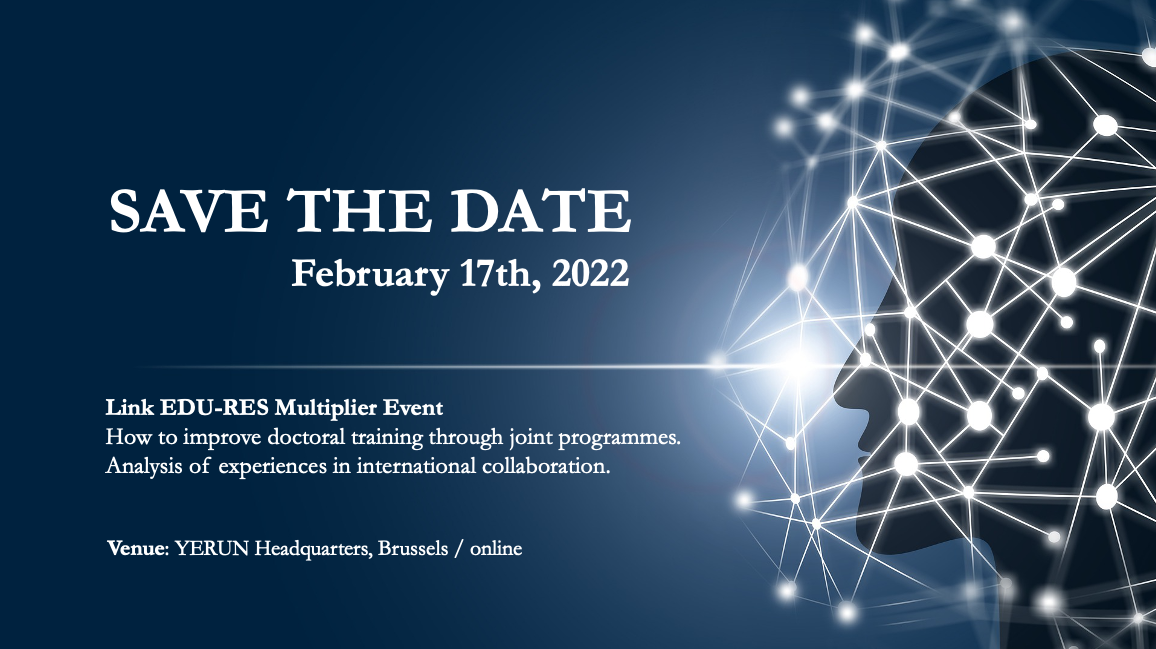Link EDU-RES stands for “Joint programmes at Doctorate Level in a European university network: Linking Education and Research towards the European Education Network”. It is an Erasmus+ Key Action 2 project (“Cooperation for innovation and the exchange of good practices”), funded by the European Commission (KA203-060318).
The consortium is composed of the University of Antwerp (coordinator), University of Bremen, Universidad Carlos III de Madrid, University of Essex, Maastricht University and University of Rome Tor Vergata. The remaining YERUN universities are included as associated partners.
The project focuses on the internationalisation of doctoral education and the establishment of collaborative and interactive frameworks for its operation. In particular, its main objective is to lay ground for the creation of joint programmes at doctorate level in a European network of research universities (YERUN).
The project strives to meet seven objectives:
First, it examines and compares the requirements and regulations for doctoral programmes in different European countries. This allows to reveal areas in which a certain degree of harmonisation is possible and identify good practices in successful collaboration across borders.
Second, it identifies the different possible types of collaboration at doctorate level based on the collaborations that YERUN universities are currently engaged in (as a representative sample of young research universities in Europe).
Third, it designs guidelines and tools for the development and running of joint programmes at doctorate level, which can be used by any European university.
Fourth, it integrates research and education by creating consortia of universities and organisations around key research topics that the participating universities have identified as thematic areas in which cooperation is crucial (e.g. Migration, Health and Ageing and Digital Humanities). In particular, several research seminars around these topics will be organised in order to promote mobility and exchange of researchers and doctoral candidates.
Fifth, it contributes to the training of early career researchers in transferable skills (e.g. communication skills, career management, organisation leadership and project management, and intercultural competences). Therefore, a summer school will be organised with a thematic focus on key issues and global challenges in European society (in particular: social inclusion, open education, technology and digital learning, and open science).
Sixth, by means of staff weeks and multiplier events, it contributes to the debate on innovation in doctoral training. During these staff weeks and multiplier events experiences and project results are shared among members of the network and at the European level.
Finally, the project aims to contribute to the creation of the European Education Area by strengthening cooperation within the YERUN network in the areas of research and education, paving the way towards the creation of truly European universities that can cooperate seamlessly across borders.
Interested in finding out more? Make sure to keep posted on Twitter and LinkedIn!










